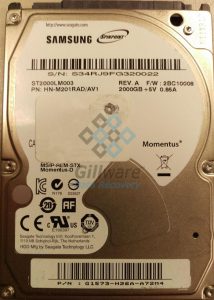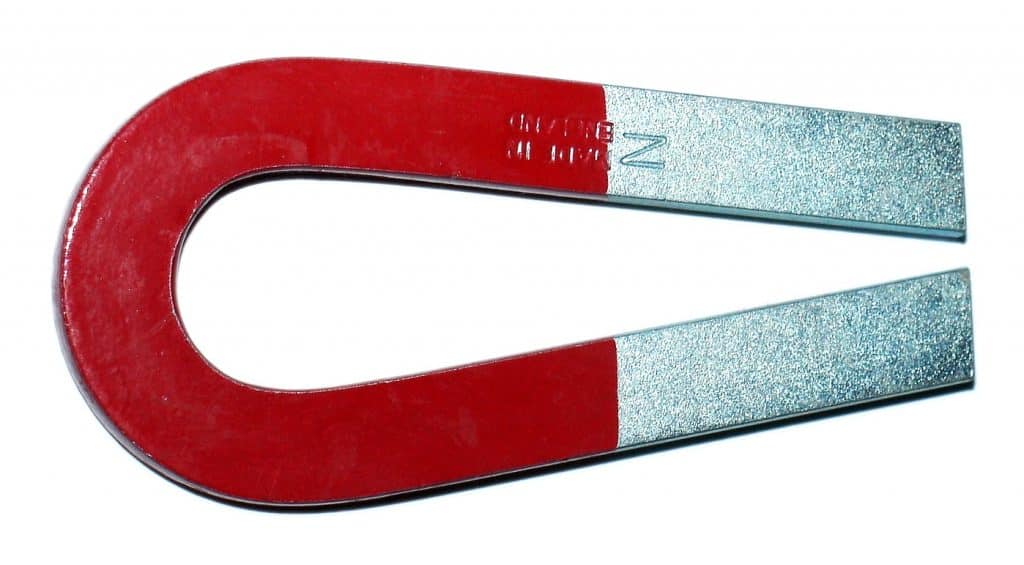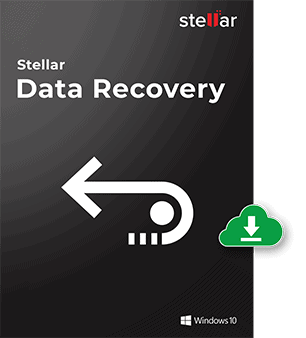Damaged Hard Drive Recovery: A Magnetic Personality?
Our client in this data recovery case came to us with a dying hard drive. They had taken the external hard drive, which they’d used to store family photos and videos, to a local computer repair shop first. There, the technicians could see data on the drive, and didn’t hear it making any kind of noises indicating a severe failure. However, they could not open any files or copy over any data. There was definitely something wrong with this Samsung external hard drive. Fortunately, our damaged hard drive recovery experts were on the case.

Our client wondered what could have caused their hard drive to start failing. They had stored the Samsung external drive, when not in-use, in a drawer sealed with a magnetic clamp. Could that magnet have damaged the drive enough to prevent them from transferring files from it?
It’s a common enough meme: we’ve been told all our lives to keep magnets away from computers, television screens, credit card strips, and other electronic devices and magnetic data storage media. The magnetic field of the magnet, we’ve been told, could interfere with the magnetic field on the storage media, turning 1s into 0s and erasing data—permanently.
Can Magnets Wipe Hard Drive Data?
It’s true, of course, that a powerful magnetic field can influence the data stored on magnetic media (such as hard disk platters). In fact, when an organization needs to dispose of hard drives (failed or otherwise) containing sensitive data (like a patient’s healthcare records), they will use magnets to destroy the data for good. This process, called “degaussing”, keeps data from falling into the wrong hands. It wipes everything off of the hard drive’s platters, even firmware. This renders the drive not only completely blank, but utterly unusable.
Can the kind of magnet you have lying around at home do this, though?
To answer that question, K&J Magnetics did an interesting case study on magnets versus hard drives. To investigate, they stuck two powerful neodymium magnets (from their own supply, of course) onto a hard drive and moved them while copying and reading data from the drive. These magnets—much more powerful than the kind you’d have holding little Timmy’s latest math test to your refrigerator—had a surprising effect. Mainly, they did nothing to the data on the drive. Even these strong magnets couldn’t compare to the magnetic field a hard drive endures in a degaussing facility.
The folks at K&J Magnetics did notice the hard drive making unusual sounds due to the effects of the magnets on the platters, even though they couldn’t erase any data from the platters. Keep in mind, though, these neodymium magnets are far more powerful than what our client likely had around the house. It was unlikely any magnet they had could have produced a similar effect. All the same, though, it’s a good idea to keep magnets and hard drives apart.

What’s Your Damage: Damaged Hard Drive Recovery in Gillware’s Lab
Our damaged hard drive recovery experts took a careful look at this hard drive in our data recovery lab. Our engineers noticed that its read/write heads, which read data from and write data to the hard disk platters (as their name implies) were in rough shape. No part of a hard drive works harder than the read/write heads. Much like humans, when a hard drive starts going gray, the heads are often the first to feel it. The heads were just well enough to work—but just barely. And they were fading fast.
With the help of our powerful, fault-tolerant data recovery software and the careful guiding hand of an expert engineer, though, our damaged hard drive recovery specialists could pull data from the drive without replacing the read/write heads.
Damaged Hard Drive Recovery Results
Drive Model: Samsung ST2000LM003
Drive Capacity: 2 TB
Operating/File System: Mac HFS+
Data Loss Situation: Hard drive going bad—computer repair technicians can see data, but cannot read or copy over any of it
Type of Data Recovered: Family photos and videos
Binary Read: 35.2%
Gillware Data Recovery Case Rating: 10
Our damaged hard drive recovery specialists managed to image 35.2% of the sectors on the drive’s disk platters. This made up the used area of the disk—the portion of the platters which the HFS+ file system’s file definitions defined as “in-use”. We had all of the used area, and all of the client’s precious family photos and videos. We rated this damaged hard drive recovery case a 10 on our ten-point case rating scale.
Our engineers didn’t see anything suggesting that this damaged hard drive could have been damaged by the (relatively weak) magnet you’d find in a magnetically-sealed drawer. More likely, the drive had been damaged by nothing but the inexorable march of time. While we here at Gillware get plenty of dramatic data recovery cases in which a hard drive fell off a desk or got fried by a power surge, most data recovery cases are not so dramatic. Often these hard drives fail without a single obvious external catalyst. Their failure resulted from gradual wear and tear on the drive’s sensitive components.
Consumer-grade hard drives are usually designed to stand 5-10 years of use in a home setting. Some drives wear out sooner than others, though, because no assembly line will have a 100% perfect yield. Some drives fail right off the line; they get swept off, refurbished if possible, and recycled if not. Others just have life expectancies a little shorter than their peers.
Hard drives don’t need external reasons to fail; they do that just fine by themselves. Still, we humans are pattern-recognizing creatures, and we always search for a concrete reason “why”. But sometimes a spade is just a spade, and a cigar is just a cigar.
Data Recovery Software to recover
lost or deleted data on Windows
If you’ve lost or deleted any crucial files or folders from your PC, hard disk drive, or USB drive and need to recover it instantly, try our recommended data recovery tool.
Retrieve deleted or lost documents, videos, email files, photos, and more
Restore data from PCs, laptops, HDDs, SSDs, USB drives, etc.
Recover data lost due to deletion, formatting, or corruption

